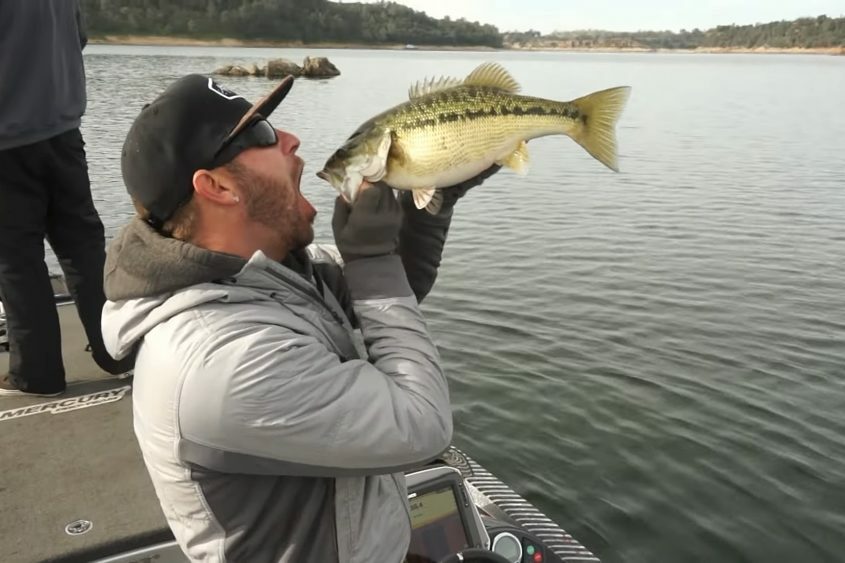Are you an avid angler looking for a serene fishing spot? Look no further than Lake Wylie, a hidden gem nestled in the heart of North Carolina and South Carolina. With its picturesque beauty and abundant aquatic life, Lake Wylie offers a perfect setting for fishing enthusiasts of all levels. In this article, we will explore the various aspects of Lake Wylie fishing, from its diverse fish species to the best fishing techniques and hotspots.
Lake Wylie is a man-made reservoir located on the border of North Carolina and South Carolina. Created in 1904 by the construction of the Catawba Dam, this stunning 13,400-acre lake spans 32 miles and offers an abundance of fishing opportunities. The lake’s irregular shape, scenic coves, and diverse shoreline make it a paradise for anglers seeking a peaceful retreat.
Fish Species at Lake Wylie and their Baits
Largemouth Bass
The largemouth bass is a prized catch for many anglers at Lake Wylie. Known for its size and strength, this species requires specific baits to entice it. Topwater lures such as frogs and buzzbaits are excellent choices for targeting largemouth bass. Additionally, soft plastic worms, jigs, and crankbaits are highly effective in attracting these elusive predators.
Crappie
Crappies, both black and white, are abundant in Lake Wylie. These panfish are sought after for their delicious taste and challenging nature. When it comes to crappie fishing, using live minnows or jigs with soft plastic bodies can yield excellent results. It’s important to experiment with different colors and sizes to find the right combination that entices these fish.
Bluegill
Bluegill, a popular freshwater fish, is abundant throughout Lake Wylie. They are known for their willingness to bite and are a great catch for beginners and families. Natural baits like worms, crickets, and small insects work best when targeting bluegill. Additionally, small jigs and spinners can also prove successful in attracting these feisty fish.
Channel Catfish
Because of their size and fighting spirit, channel catfish are highly sought after by anglers. To maximize your chances of catching channel catfish at Lake Wylie, it’s recommended to use bait such as chicken liver, nightcrawlers, and stink baits. These strong-smelling baits are irresistible to channel catfish, drawing them toward your fishing spot.
Striped Bass
Striped bass, also known as stripers, are a favorite target for many anglers at Lake Wylie. These fish are known for their aggressive nature and can provide an exhilarating fight. When it comes to bait, live baitfish such as shad or herring are preferred for catching stripers. Trolling with artificial lures that mimic these baitfish can also yield positive results.
White Perch
White perch, a smaller species compared to others on this list, are nevertheless abundant in Lake Wylie. These fish are known for their schooling behavior, making them easier to target once you locate them. Baits such as small jigs, spinners, and live minnows work well for catching white perch. They can be found near structures like docks, bridges, and submerged trees.
Carp
Although often considered a nuisance, carp can provide an exciting challenge for anglers. Lake Wylie has a healthy population of carp, and they can grow to impressive sizes. Using dough baits, corn, boilies, or bread can prove effective for carp fishing. Patience and persistence are key when targeting these powerful fish.
| Fish Species | Preferred Baits | Average Size | Peak Fishing Season |
|---|---|---|---|
| Largemouth Bass | Topwater lures, soft plastic worms, jigs, crankbaits | 2-8 lbs | Spring and Fall |
| Crappie | Live minnows, jigs with soft plastic bodies | 0.5-2 lbs | Spring and Fall |
| Bluegill | Worms, crickets, small insects, small jigs, spinners | 0.2-0.5 lbs | Summer |
| Channel Catfish | Chicken liver, nightcrawlers, stinkbaits | 2-10 lbs | Summer |
| Striped Bass | Live shad or herring, artificial lures | 5-20 lbs | Spring and Fall |
| White Perch | Small jigs, spinners, live minnows | 0.5-1 lb | Summer |
| Chicken liver, nightcrawlers, stink baits | Dough baits, corn, boilies, bread | 10-30 lbs | Spring and Summer |
Lake Wylie Fishing Hotspots
Lake Wylie is home to many renowned fishing hotspots that are absolutely worth exploring for any fishing enthusiast. From the convenient fishing piers at Buster Boyd Bridge Park to the serene and secluded coves near Copperhead Island, every spot offers unique and exciting angling opportunities. For the best chances of success, it is highly advisable to regularly check local fishing reports and seek guidance from experienced anglers who can provide valuable insights into the most productive areas on any given day. Doing so allows you to maximize your fishing experience and make the most of your time at Lake Wylie, a true haven for avid anglers.

FAQs
What are the best spots to fish at Lake Wylie?
There are several fishing spots at Lake Wylie. The best sites for bass include the dam and drop-offs in the main channel. An excellent location for fishing for crappie is behind the dam. The best spots for catfish include main channel points and drop-offs in deeper waters.
Do you need a fishing license for Lake Wylie?
Yes, you need a fishing license to fish in Lake Wylie. You can buy your fishing license online now.
Are catfish biting at Lake Wylie?
Yes, catfish are biting at Lake Wylie. Captain Chris Nichols provides information on the best spots to catch them. He says that the catfish are biting at Lake Wylie and that the best spots for catching them are near the dam, in the creeks, and around structures.
Are there alligators in Lake Wylie?
No, there are no alligators in Lake Wylie. Alligators are not native to the area and would not be able to survive in the cold water of the Lake. However, some customers have reported seeing an alligator while fishing. Most likely, they saw a log or another object resembling an alligator.
What is at the bottom of Lake Wylie?
There is no definitive answer to this question. Lake Wylie is an artificial reservoir, so likely, the bottom of the Lake is mainly composed of sediment and rocks. However, because it is a popular fishing destination, much fish will likely be in the Lake.

